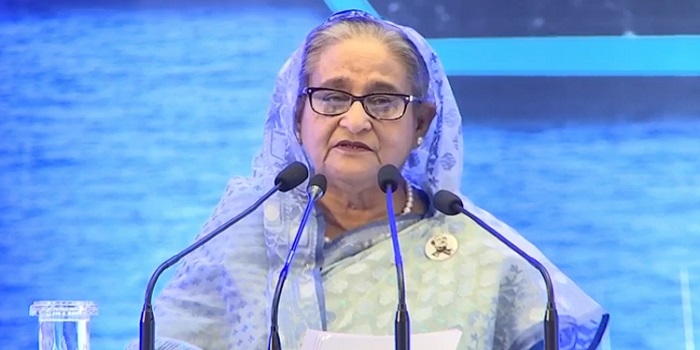Taqwa in Mumins’ Life

The Almighty Allah has created human for doing only His preferred deeds (Ibadat). To remind that He sent Nabi/Rasul/Messengers to guide the mankind from time to time. They taught and guided people about halal, haram, permitted, prohibited things and how to live by considering good and bad.
The necessity and importance of fear of Allah is very much crucial to live a life avoiding injustice, unethical works and wrong doings. This is why, to be an honest, ideal and blessed one; there is no alternative to taqwa.
Identity of a Mumin:
Mumin, derived from Iman is an Arabic word, which means a person who believes in Allah. Merely pronouncing as a believer is not enough to be considered as a Mumin. Allah says, “And there are some people who utter that they believe in Allah and in the Last Judgment Day; but they are not true believers.” (Surah Bakara: 8)
Prophet Mohammad (PUBH) says, “Iman is that you believe in Allah, in the last Judgment Day, in the Angels, in the Holy Quran, in all the Prophets, death and the life afterwards. You also believe in Jannat, Jahannam, in good deeds and sins and in the uncertainties of the future or fate. When you feel that you believe in all the above, only then you can be sure that you have got iman.” – Musnade Ahammad: 2924.
Any person who is identifiable with his talking, dealings, deeds and character under Islamic beliefs and Shariah may be called a Mumin.
Attributes of a Mumin:
a) Fear of Allah in mind, b) Talking and dealings with politeness, c) Maintain mediocrity in spending, d) Safeguard chastity, e) Preserve others assets with utmost care, f) Keep commitments, g) Avoid unnecessary talks or deeds, h) Show highest respect and devotion to the Prophet, i) Show empathy to others, j) Provide safety of others’ properties, k) Mentally surrender to Allah, l) Take care of the hungry neighbors, m) Establish salat, n) Be submissive at the salat, etc.
Taqwa in Mumins’ Life
What is Taqwa:
Tawqa, an Arabic word means to fear, be careful of, to avoid something, to be pious. According to Islamic Shariah, taqwa is called to comply with the permitted deeds and avoid the prohibited works in the fear of Allah as well as for the punishment in the life afterwards. The person who does all these is called Muttaqi.
Example of Taqwa:
Ubay Ibne Kab (Ra) answered to a query of Omar bin Khattab (Ra), carefully walking of a person to avoid injury through a garden full of thorns is called taqwa. The world is a garden full of thorns; the evil is ready with various types of thorns like kufor, sirak, bedwat, lying, cheating, usury, bribes, corruption, theft, greed, grudge, pornography, lewdness etc. to derail people. Mumins always try to avoid all these sins.
Allah has shaped a simple and straight path by His Prophets in the world for the human beings. The virtuous people will walk through this earthly life by avoiding all such sins in fear of Allah and fear of the punishment in the life afterwards in such a way that they do not become trapped in those thorns of evil. The way of such living in the world is called taqwa and the person who lives like this is called muttaqi.
Practical Situation of Taqwa:
Only wearing Islamic cap (tupi and pagri) on head, keeping long beard on face, putting on long panjabi and carrying tasbih in hand are not taqwa, in fact. These are simply sunnah and mustahaf. One has to adhere to the permissible and prohibitions of Allah in terms of personal, familial, societal, cultural, economic, international and other issues to be a Muttaqi. Trying to maintain decency in dress, avoiding usury, bribery, giving instruction for good works and prevention of bad works, initiating to invite people towards Islam for establishing religion and equity in society are some to mention.
How Taqwa of a Mumin to be:
Bime fish (a local fish) though lives in muds does not carry muds in its body, likewise in the present society that is full of sins and prohibitions declared by Allah, a Mumin lives in this society avoiding such sins and adhering to His permissible and prohibitions. Not steering in favor of the banal society, a Mumin stays flawless through abiding by Allah’s instructions. S/he introduces and practices the good things in the society against the bad ones.
Real case of Taqwa or fear of Allah:
Being abstain from the prohibited things of Allah and expecting bless from Him; complying with all His instructions and respect and be afraid of Him according to the His level and extent is called taqwa.
Allah says, “You Mumins! Fear of Allah, Fear as you ought to do as per His status and don’t die without being a Muslim.” (Al – Imran: 102)
Fundamental issues of Taqwa
A) To comply with the instructions and avoid the prohibitions of Allah and His Prophet (PBUH). B) To abstain from Shirk (denying Allah), bidyat (fabricated/added religious rules). C) To refrain from such activities those tend to make people oblivion of Allah.
Stages of Taqwa:
Imam Gazzali (Ra) categorized taqwa into four stages on the basis of quality and its standard. For example, a) To avoid all prohibitions (haram) declared by Islamic Shariah, b) To refrain from permissible but dubious things, c) To abstain from even unnecessary halal things in fear of Allah, d) To reject the halal things, which do not help in praying for Allah.
Allama Ragib Ispahani has classified taqwa into three stages. They are – a) Wazib: To avoid all types of prohibitions. This is mandatory for all Mumins. B) Mustahab: To abstain from suspicious things (halal or haram?). This is medium level in terms of taqwa. C) Mafzul: To refraim from Mubah (no good, no bad) and less necessary things. This is the highest level of taqwa.
The importance, necessity and benefits of Taqwa in Mumins’ Life
A. Taqwa is a tool to the Right Path (Hedayah):
The person who possesses taqwa gets the blessing and ultimately the right route to Allah. Allah does not guide the non-believers. The Holy Quran guides Mumins to the right path. Allah says, “The Quran is the Book that doesn’t contain any disbelief or distrust; this Book works as the Guide for Muttaqis.” (Bakara: 2)
B. Taqwa is the benchmark for dignity:
The person who shows the most fear and the most respect to Allah is the most prestigious to Allah i.e. Muttaqis are the most distinguished to Allah. Allah says, “Certainly the person who is the most Muttaqi is the most honored to Allah.” (Huzrat: 13)
C. Taqwa in relieving crisis:
Facing of various types of dangers and problems by human beings in the world is, in fact, a test from Allah. Allah examines His obedient humans by giving fear, loss of property and production, hunger for food etc. And this is He who rescues His creatures from all these troubles. Allah shows ways to Muttaqis for relief. Allah says, “Allah saves him who fears and respects Him.” (Talak: 2)
D. Surprising rizk (earnings/ wealth):
Allah provides Muttaqis with abundance of livelihood and wealth. The person cannot even imagine about the source or count such plenty of livelihood. Allah says, “And he is given such abundance in livelihood that he cannot even think of its source.” (Talak: 3)
E. Purification of deeds, forgiveness of sins and the ultimate success:
Allah purifies (Islah) his deeds (A’mal) who maintains taqwa. He provides him/her with scope to do acceptable good deeds. Because Allah accepts only the purified good deeds. Allah says, “You, Mumins ! Respect and fear of Allah and speak the truth, then He will rectify your deeds and He will forgive you. Those who follow Allah and His Prophet (PBUH) achieve the ultimate success.” (Ahjab: 70-71)
F. Receiving the love, blessing and Zannat of Allah:
Allah loves Muttaqis. He assures of providing with better life in the world and relief from the punishments in the life afterwards and keep them with full of His blessings. Allah says, “Muttaqis will enjoy a lavish life in Zannat”. (Tur: 17)
Therefore, strive to be a Mumin to get a better life in this world as well as in life after death with full of blessings from almighty Allah should be initiated by the Muslims.
[Writer: Md. Din Islam Miah FCA, Principal of Darul Mukam Madrasha, Dhaka a place of Islamic education for the generally educated adults.
Translated by: ASM Mijanur Rahman, a student of Darul Mukam Madrasha, Dhaka]








